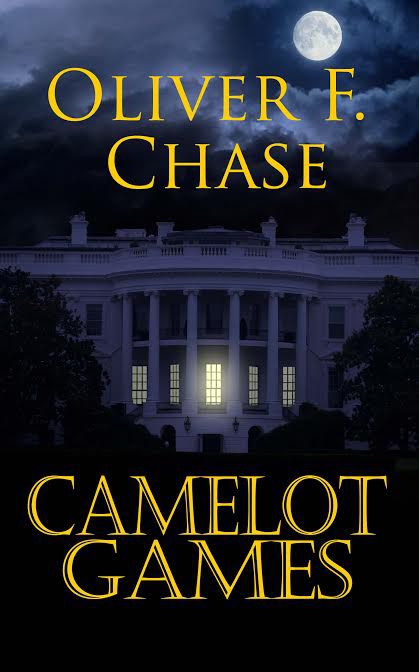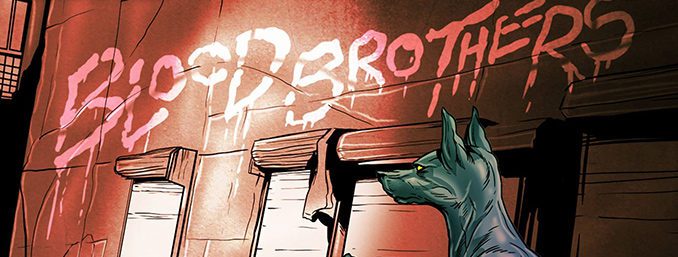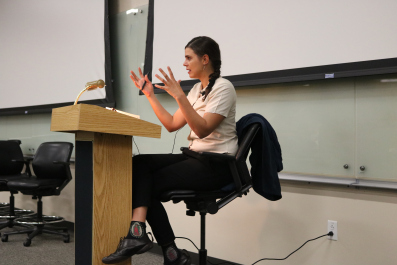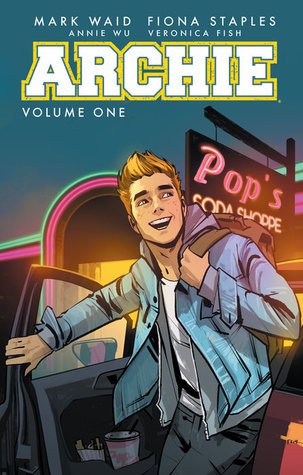
I occasionally review books and interview other authors on this blog. Here, I interview Oliver Chase, who recently published a political thriller, “Camelot Games.” Given the current political situation, I thought “Camelot Games” was incredibly insightful, as well as a great, fast-paced read.
In the interest of full disclosure, Oliver Chase belongs to a very exclusive group of which I am also a member—authors who were formerly published by AEC Stellar Publishing. AEC Stellar, once presided over by publisher Ray Vogel, featured a number of new authors that Ray took under his wing. The pressures of his “day job” and the need to give more time to his family forced Ray to give up his dream, and our little group of diverse authors was scattered to the wind. I think we all still have a collegial feeling for one another—I know I do. I’ll always be grateful to Ray for publishing my first novel and launching me into my lifelong dream of being a published novelist.
KD: In “Camelot Games,” you’ve written a fast-paced political thriller, complete with back-room skullduggery, betrayal, misdirection, an attack on the nation’s infrastructure, and an attempt at secession. When you wrote this book, was there something in the political atmosphere of the time that inspired you? Or was it something else?
Oliver: What a fun question. Several years ago as I waited for the editor to return one of my novels, I read about the 2003 Northeast blackout. As catastrophes go, only a small part of America and Canada were affected. If you were there, it was awful. If not, the whole affair was someone else’s problem.
The financial losses impacted millions of people. Elevators stuck between floors. The NE corridor’s trains stopped on their tracks. Fire departments and first responders worked for days to help people only to find many could not hold on.
I read about the computer glitch, a bug that kept an alarm and a notification at bay until it was too late. The bug was not intentional, but what would happen if it was?
What would happen if a kingmaker decided his little pond was not big enough, or that he wanted to be more than just a footnote in the history books. Why not use a handsome front man and a lovely ambitious wife at a time when an unhappy nation had grown distrustful of its leadership and clamored for a savior.
Scott and Angie McHale waited in the wings, poised to save a nation, a gentle guiding hand for the ages, and born from the ashes.
K.D.: Are you surprised by how many elements of your novel came to the fore in recent politics, such as the Calexit movement?
Oliver: “Camelot Games” came about in two starts. When a jury convicted a wife killer in San Francisco, I was amazed at the man’s steadfast denial in the face of overwhelming, though circumstantial evidence. I read his testimony and wondered if he could hear himself. Where was his attorney? I haven’t an opinion if the killer sitting on death row today is justified. Or, if the real killer still runs among us. But, I note the man’s refusal to concede or ask forgiveness is pretty unique.
The second story that brought both halves of the novel together involved an early agent provocateur railing against the haughtiness of industrialists who believe their own press. He pointed out they paraded naked, and refuse to listen. Such egotistical ham-handedness of the less powerful might cause temporary pain for citizens, but to do such a thing on a national scale, could prove disastrous.
Hence, “Camelot Games.”
K.D.: This story required a thorough knowledge not just of politics, but of military protocol and procedure and law enforcement. Do you have a background in these fields?
Oliver: I’m hardly apolitical, either in my personal beliefs or my actions. The story however does not identify one party or the other. I’ve scrubbed my convictions clean of the characters and let each either damn or exonerate themselves without regard to a modern political party, organized religious principle, or ethnic background. The book does take place in America, takes a swipe or two at other countries, but pits people and not organizations against one another.
BTW, people suggesting the secession of states, cities and communities has been around since the Whiskey Rebellion in 1791. No one is ever completely happy, even in America. We’re just not wired that way.
K.D.: Your protagonist, Scott McHale, is a strong character, though flawed. Unusually for your genre, his wife Angie is also a strong character and she plays a significant role in your story. Did you start out intending to have a strong husband-and-wife team, or did it just work out that way?
Oliver: I’m a staunch proponent of partnerships. I’d like to think stalwart individuals forged civilization from the Stone Age, but that didn’t happen. Partners happened. Sometimes a community forms an enterprise, sometimes its two people. Like in a marriage. My personal experience finds love a terrific motivator and the glue when the going gets tough. Respect, belief, vision, dedication are important and have their place in partnerships, too.
Does anyone ever wonder why a love-interest in a book appeals to readers? Rocky or rock-solid, I think we innately recognize we humans do better when burdens and happiness are shared.
K.D.: Did you have any trouble writing the female characters? Is Angie based on any real person or persons? Is Big Jim based on a real person, or is he an amalgam of shadowy kingmaker-types?
Oliver: Trouble writing female characters? Hmm. I suppose the reader will have to tell me if I missed the mark with the females in Camelot Games. Obviously, the book centers around strong women. Several are not just important, but are vital to move the story along. Each possesses a unique voice, philosophy, and view of the story. Each will reveal themselves by their actions and their words. I’d have to admit one or two were easier than others. All the females are fictional. Some I’ve known in my imagination, some I wanted to know. Some I hope, I’ll never to have to meet.
K.D.: What were the aspects of the plot that gave you the most trouble? How did you work past it?
Oliver: Since we first started telling tales around campfires in caves of animal drawings, we the storytellers tried to capture the imaginations of our audiences. A plot must be in mind when we begin the story, the stronger and more solid, the better. Otherwise, we’ll lose the reader, shaggy dog stories notwithstanding.
The plot of “Camelot Games” makes clear the book is not a techno thriller. The general pleasure reader likely has little desire to be wowed by my grasp of technology, aerodynamics, or frankly, the inner workings of senatorial subcommittees. What I hope the reader will see is that unbridled ambition by any name changes the dynamics of our most important relationships. Whether it’s marital love, dedication to country, or a lawmaker’s connection to those who elect him, aspirations left unchecked have a way of eating us from within.
K.D.: Did you have to do a lot of research for this, or were you already very familiar with what you were writing?
Oliver: Research is always a tricky, little devil. As I spent time piecing together the elements of the book, I read and researched quite a bit that never made its way into my pages. For instance, Scott McHale sat on several subcommittees, at least two of which had a direct bearing on nuclear energy. In order to make sense of the mysterious buildings that suddenly began populating western United States, someone had to clear the way. Be he willing or unwilling, the task needed to be completed. Not much of my self-education on legislative process appeared in the book. If however, a teacher or even a congressman in the know happens to read “Camelot Games,” I needed to make the process of approvals and financing believable.
As a side note, one of my tools was to have been the now illegal “ear marking.” When that went by the boards, I need to go back to my studies and find another way to fulfill Scott’s mandate. When we use a story-vehicle, authors must insure there’s air in the tires. Otherwise, the story will go flat, too.
K.D.: Which writers have been your primary influences?
Oliver: Herman Wouk, James Michener, and Leon Uris caught my attention and imagination early in my life. They encouraged me to seek out the more difficult writers like Faulkner and Steinbeck. I’m pretty conventional, I know, and I’ve never grown too far from that apple tree. Today, I like Craig Johnson, Helen Wecker, John Sanford, Stephanie Meyer, and Karen White. I find myself listening to as many books as I read, but still look forward to that twenty-minute sweet spot, under the bedroom lamp, just before I fade to sleep.
K.D.: Will you be using the Scott and Angie McHale characters in a sequel? If so, when will the book be available?
Oliver: I had not thought about Scott and Angie in a sequel. To tell the truth, I’m so busy with my noir crime series, I hadn’t considered it. But thanks for the question. I’ll have fun toying with the idea.
K.D.: You made it clear in “Camelot Games” that America’s electrical grid is vulnerable to attack from within. Do you also see it as vulnerable to attack from abroad? What should be done about that?
Oliver: America’s vulnerability to an attack on the electrical grid is a scary reality. In the last few years, more and more is written about how we should be protecting ourselves. Like anything else in government, unless the priority rises to a level where one’s votes are in jeopardy, I doubt any legislator will lean too far forward. The loss of power for even a short time will be catastrophic.
A year after “Camelot Games” went to the publisher’s dark hole, I happened across “One Second After” by John Matherson. Newt Gingrich didn’t write my preface, but he did Matherson’s, and what he said, and believes, is downright scary. Perhaps different stories, but the same frightening result.
Before I say adieu, please allow me to make a shameless, self-serving pitch. Oliver Chase’s Take on Life contains a couple short stories, tiny vignettes about people I once knew and serves as a testing ground for my 2018 anthology. Interestingauthors.com is a place I go weekly to let off a little steam. A couple other authors do the same. I enjoy reading their stuff as much as writing my little bit.
By the way, Olivechase.net is a place to buy my books. If you’d like signed, paperback copies, and we can’t catch up with one another in a Barnes and Noble or Indie bookstore, drop me a note. We can try to work something out. I’d rather go in the red and have you read the book, than try to hold anyone up for a couple of bucks. Besides, I really enjoy readers and writers so please don’t be shy. I’m not that hard to find.
Oliver Chase Biography

Oliver Chase, author of “Camelot Games”
Oliver grew up on military bases throughout the country and like all boys, played good guys and bad. Coaxing him into an afternoon of baseball along Lake Erie, hiking the Southern California’s hills or paddling a canoe in the North Carolina backwater didn’t take much unless a book found him first.
His best friend and he joined the Marines and took a deferment to attend college. Herb left school finding stumbling blocks that seemed insurmountable at the time. A year after graduating, Oliver stepped onto a sweaty tarmac with a manual Smith Corona typewriter not far from where Herb had died. Fate usually finds a way of putting day-to-day frustrations into a cruel perspective, especially when lost in the haze of an ugly war.
Thirty-one young men flew days and nights in the mountains trying to keep the world safe for … well, says Oliver, that’s not really true, is it? The only reason we ever went into those dark, frightening places was to save our friends, most of whom we’d never met, and never would. That they lived however, meant others died and that still haunts to this day.
He spent time wandering after he got home. Lots of young veterans did, some on foot, some on the rails. Many like Oliver make stops along the road life gave him. He never slept in the park or a bus station, although many did. Most eventually found a way out of the maze from that crazy period of time, yet too many others did not. Oliver promised he was never truly at risk, but still believes pulling the right ticket is mostly a matter of circumstance and luck.
He did a bit of teaching on the Navajo reservation, spent a few years with the cops and a couple alphabet agencies and never quit writing. The old manual typewriter became a memory when his first computer came along. A Lenovo notebook travels with him now, the wanderlust never completely leaving him be. Today, he spends days on the family farm and occasionally still follows the season around when a bookstore bids welcome. Sometimes he wonders if the old Smith Corona found a home, too. He hopes so, wishing his old friend happier days.
Oliver Chase Links
- http://www.amazon.com/Oliver-F-Chase/e/B00G6QN2BQ
- https://www.youtube.com/channel/UCH9wKCoFSQz9FssbKeQ7xLQ
- https://www.facebook.com/OliverFChase/?fref=ts
- https://twitter.com/o_chase_author
- https://www.goodreads.com/author/show/7351745.Oliver_F_Chase
- http://oliverchase.net/
- https://www.smashwords.com/profile/view/OliverChase
- http://www.interestingauthors.com/oliverfchase.html
Share this:





